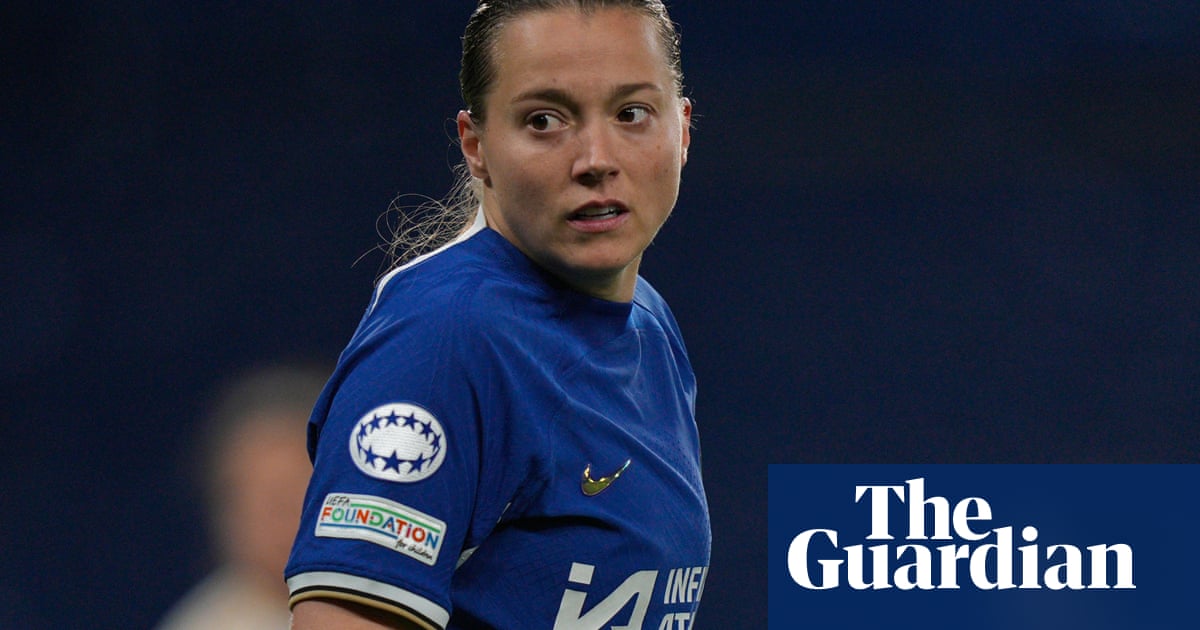
For Sabah Mahmood, coach of east London side FC Leytonstone’s under-14 girls, Lauren James’ hat-trick during Chelsea’s 3-1 dismantling of Manchester United on Sunday wasn’t the only highlight. It was also seeing Fran Kirby come on as a second-half substitute, with the club’s all-time top scorer having recently spoken out about body image pressures in football. “Fran Kirby comes on and my girls just went crazy!” says Mahmood, who took her team to the match after taking up an invite from Brown Girl Sport, which advocates for south Asian girls in sport.
Mahmood had previously spoken to her young players about Kirby’s comments. In a documentary released by her club late last year, Kirby revealed that she gets “called fat all the time” in an off-the-cuff moment filmed at training. “I was talking to some of the girls on my team about it,” recalls Mahmood. “It just opened up a conversation that didn’t exist before, but it was definitely in the girls’ minds.”
With the profile of the women’s game increasing in the media and on social media, Kirby opened up further in a recent BBC interview. “I’ve had comments where people have said: ‘Fran played really well, what a game, but she looks big today,’” said Kirby. “I’m like: ‘Why is that comment necessary?’ It shouldn’t matter what my body shape is.”
For coaches such as Mahmood, these pressures are evident among girls playing at a grassroots level, especially when they reach puberty. “Particularly around that teenage age, where you become a lot more self-conscious, as a female in regards to things changing,” she says. “Of course, some girls are maybe physically bigger or curvier and some aren’t. And I think it does affect them.”
The research is telling. In August, one study found that girls are three times more likely to leave football by their late teens than boys, with body image cited as one of the factors. In response to that research, former Lioness Jill Scott revealed that she tried to gain weight after receiving comments about her figure. “I got called skinny quite a lot of the time and some people probably think that that’s a compliment … [but] it does play on your mind,” said Scott at the time. In 2022, a study revealed that 36% of 115 female players surveyed in the top two tiers of English football displayed eating disorder symptoms. A separate 2022 survey revealed an estimated 1.3 million girls in the UK lose interest in sport as teenagers: a fear of being judged was cited as a main factor.
At grassroots clubs around the UK, Kirby’s comments have got players talking about body image and the need to emphasise that footballers have different body shapes. “Everyone’s built differently,” says Abi King, 21, who plays as a right-back for Real Bedford Ladies Development. “I’ve played against people who are bigger, smaller than me. It doesn’t matter, it’s to do with your skills and what you can do with the ball, it’s not based on how big you are. There’s people who are bigger than me who are so much faster than me, there’s people who are skinnier than me who are slower than me. It doesn’t matter at all – and that’s what I love.”
In Wales, Ghazala Jabeen, 54, began playing football for the first time during the pandemic. Jabeen, who plays for community club North Wales Dragons, was initially self-conscious on the pitch, but has since found that the sport has made her feel more confident about her body. “I slowly started to not think about how I looked or the size of me, it just gave me more confidence because I was now learning the game and the rules and expectations,” says Jabeen. “It didn’t bother me so much because everybody embraced everybody equally … We’re all shapes and sizes.”
Other grassroots players also say that the sport has helped with their body confidence, perhaps due to their day jobs or negative experiences growing up. Indeed, these pressures link to wider societal expectations. (As Kirby told the BBC: “I don’t think it’s just a women’s football problem. I think it’s bigger than that.”) King, for example, works as an actor, an industry where she says she is “body conscious all the time”, but adds: “When I’m on the pitch, I don’t ever think about it.” At the elite level, Leah Williamson has said that playing football actually helped prevent her from having body image issues as a teenager.
This season, Mahmood’s side has a new kit, which is darker in colour, meaning there are less fears around their periods or clothes becoming see-through in the rain. Her squad is made up of kids from different cultural backgrounds, and players have freedom in regards to this: some wear leggings and headscarves, while others don’t. “It’s about empowering them to feel better,” she explains. Kirby’s comments are “really, really powerful. It can be in their minds now that actually, it’s really not that deep: ‘I can look like whatever I want to look like, as long as I’m playing to the best of my ability.’”
Get in touch
If you have any questions or comments about any of our newsletters please email moving.goalposts@theguardian.com. And a reminder that Moving the Goalposts is going twice-weekly now, with newsletters dropping each Tuesday and Thursday.












